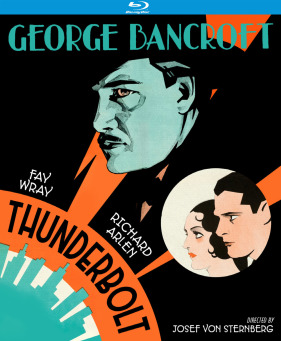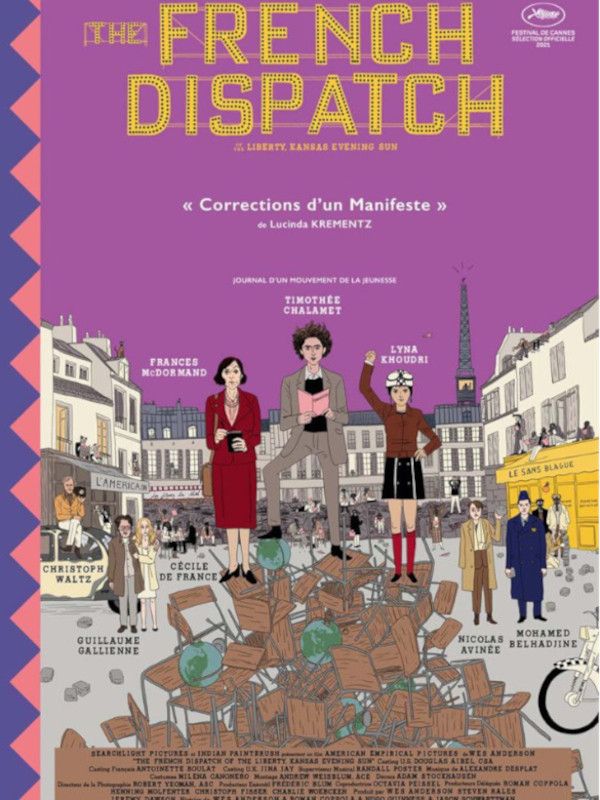
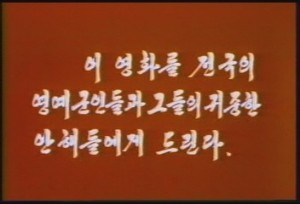
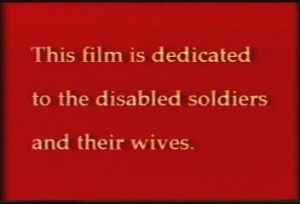
I truly regret not being able to illustrate this early piece for the Reader, published in September 1987, with the sort of illustrations its awesome landscapes deserve. In fact, the only other film by Tian Zhuangzhuang (see photo above) that I’m aware of that’s comparably impressive from this standpoint is his extraordinary Delamu (or, in Chinese, Cha ma gu dao xi lie), a 2004 documentary that’s even more neglected, at least in this country (see the photo below, immediately after the absurdly small landscape photo from The Horse Thief).[2023 postscript: Happily, illustrations are now more readily available, and even though the film doesn’t seem to be currently available on DVD or Blu-Ray, it can be seen letterboxed and subtitled in all its widescreen glory at https://www.youtube.com/watch?v=LZSjjOQUtHY.] –J.R.
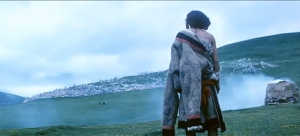
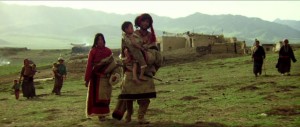
It’s worth adding that one can now obtain The Horse Thief inexpensively, letterboxed and with English subtitles, at www.yesasia.com/us/1005182257-0-0-0-en/info.html. And see the previous link for a Blu-Ray.–-J.R.
THE HORSE THIEF
**** (Masterpiece)
Directed by Tian Zhuangzhuang
Written by Zhang Rui
With Cexiang Rigzin and Dan Jiji.
By Jonathan Rosenbaum

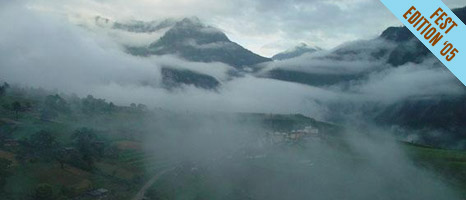
If the two aesthetically richest decades in the history of cinema have been the 1920s and the 1960s, it is in no small part due to the fact that it was during these two golden ages that film came closest to becoming a universal language. Read more
From the Fall 2021 Cinema Scope. — J.R.
The way the Internet Movie Database tells it, two pairs of writerly brothers worked with Josef von Sternberg on his first talkie, Thunderbolt (1929), recently released on a Kino Lorber Blu-ray (with a knowledgeable audio commentary by Nick Pinkerton that I’ve so far only sampled). Charles and Jules Furthman are both credited for “story,” though Jules, the younger of the two, gets a screen credit for the actual script; Herman J. Mankiewicz is credited for “dialogue,” while his younger brother, Joseph L., is credited for “titles.”
The question is: What titles? The Thunderbolt that I’ve seen and heard many times has none and needs none. Yet according to the American Film Institute’s online catalogue, there was also a silent version of the film—clearly one more missing Sternberg silent, along with The Exquisite Sinner (1926), the Chaplin-produced A Woman of the Sea(1926), The Dragnet (1928), and The Case of Lena Smith (1929), albeit one I’ve never heard mentioned before now.
John Grierson, one of the few people who saw A Woman of the Sea, concluded that “When a director dies, he becomes a photographer”—a verdict that I doubt Stanley Kubrick would have agreed with, although I’m sure that treating Sternberg strictly as a photographer and visual artist has led to the unwarranted critical downgrading of both Thunderbolt, his first sound film, and Anatahan (1955), his last (and a far greater achievement). Read more
What I find most disconcerting about Wes Anderson’s new formalist feature is its attitude towards France, which somehow manages to come across as derisive yet disinterested at the same time: not angry or witty enough to be effective as satire yet not observant enough to seem accurate, at least to a onetime resident of that country such as myself. According to all the American reviews I’ve read, it’s not really about France at all but about the American journalists and critics who report from France about France and the French. But because the movie is basically about them and not about the French, it strikes me as being only half-witted much of the time. The material for a knowing send-up of French culture is present yet unexplored and underdeveloped because the movie doesn’t really seem to care much about French people — only about French movies, French food, and other exports.
I never bothered to read Mavis Gallant in The New Yorker about May 1968 because I was living in Paris that year from June through August, before moving to that city in the fall of 1969 for five more years. So maybe I and the people of France are the last people on earth this movie was designed for. Read more
From the Village Voice (April 25, 1971). This was the first piece I ever published there, thanks to Andrew Sarris, and I’ve done a light edit (in October 2012) in order to make it a little more bearable to me. The “Indian girl” [sic] mentioned here, who subsequently became a very good friend, was Munni Kabir; as Nasreen Munni Kabir, she is identified today on Wikipedia as an author and TV producer, based in the U.K., and about ten years ago, I saw her again in London when she came to a public discussion I was having with Geoff Andrew about the short films of Kiarostami.
I believe I was mistaken about the seasonal setting of the Dostoevsky story, and apologized profusely about this to Bresson himself when he expressed interest in reading this article (which he conveyed to me via Munni, along with his address) and I sent him a copy, along with a note; I still have a copy of his gracious thank-you note, sent to me in Alabama, including his assurance that my error wasn’t very important….My subsequent encounters with (or, more precisely, sightings of) Bresson in Paris occurred at a screening of Luchino Visconti’s White Nights at the Cinematheque’s auditorium on Rue d’Ulm, a private screening of Susan Sontag’s Promised Lands, and two successive private screenings of Bresson’s Lancelot du Lac with members of his cast and crew. Read more








